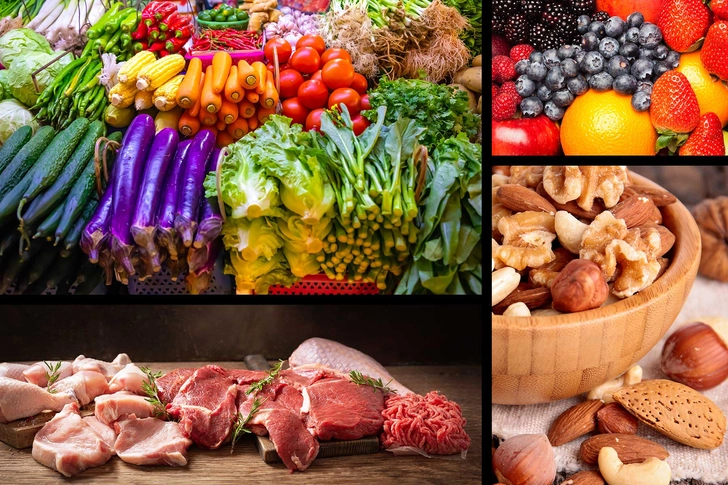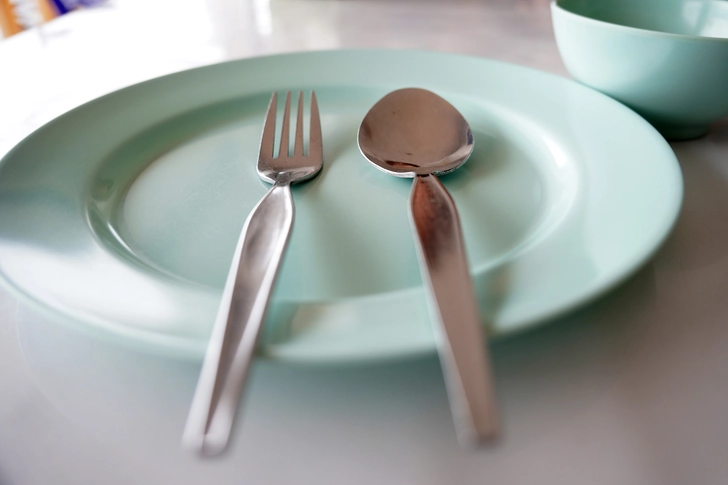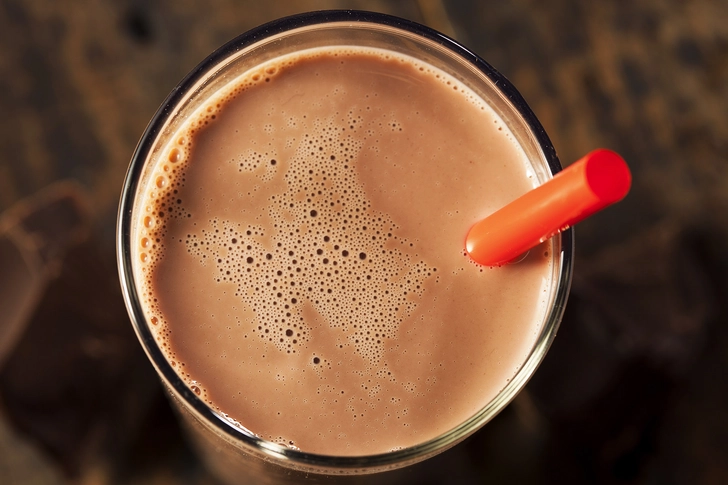- Overview
- Symptoms
- Causes & Risks
- Tests & Diagnosis
- Treatment
- Living With
- Complications
- Support & Resources
- Appointment Prep
- View Full Guide
11 Best Diets for Crohn’s Disease: What to Eat and What to Avoid



Several eating plans may help manage Crohn’s disease symptoms. The Mediterranean diet focuses on nutritious whole foods and fiber, while restrictive options like the low-FODMAP diet limit certain carbohydrates that can be hard to digest. The best plan depends on your symptoms, disease activity, and overall health. There’s no one-size-fits-all diet for Crohn’s disease, but understanding the most common approaches can help you and your doctor choose the one that works best for you.

Low-Residue Diet
This replaces high-fiber foods like whole grains, raw veggies, and beans and other legumes with easily digested processed foods like white bread and white rice. It may help during a flare or if you have a bowel stricture. However, Crohn’s experts today are less likely to recommend limiting fiber-rich foods. Instead, blend, chop, peel, or extra thoroughly cook such foods to smooth their texture and make them easier to digest. Ask your dietitian what would work best for you.

Specific Carbohydrate Diet
Some experts think this diet helps because it lowers harmful gut bacteria and supports healthy ones. You cut out foods made with complex carbs such as wheat, rice, and other grains. You also avoid dairy products like milk, ice cream, and most store-bought yogurt, as well as added sugar. You can eat fresh fruits and vegetables (except starchy ones like potatoes), unprocessed meats, some cheeses, and legumes such as lentils. This diet may help ease your symptoms during a flare.

Mediterranean Diet
The Mediterranean diet focuses on fiber-rich, plant-based foods such as fruits, vegetables, whole grains, legumes, and olive oil. You eat smaller amounts of dairy, eggs, and poultry. This plan favors lean proteins like fish and chicken instead of red meat. It also limits ultraprocessed foods, added sugar, and extra salt. Experts recommend this diet for most people with Crohn’s disease. Avoid it if you have a stricture or severe malnutrition. During a flare, you may need to lower your fiber intake temporarily.

Low-FODMAP Diet
FODMAP stands for fermentable oligosaccharides, disaccharides, monosaccharides, and polyols. These are hard-to-digest carbohydrates that can cause diarrhea, bloating, and other digestive symptoms. Foods high in FODMAPs include stone fruits, some vegetables like garlic, onions, cabbage, and broccoli, as well as milk, yogurt, beans, wheat, rye, and sweeteners such as honey. Low-FODMAP options include eggs, meat, almond milk, rice, oats, quinoa, oranges, grapes, eggplant, tomatoes, and potatoes. Experts suggest this diet as a short-term option to help ease your symptoms during a flare.

Anti-Inflammatory Diet
People with Crohn’s often have more harmful gut bacteria than helpful ones, which can cause inflammation. To calm this inflammation, you eat fermented foods such as plain yogurt, tempeh, and kefir that contain probiotics, the good bacteria your gut needs. You also include prebiotic foods that feed these bacteria, like oats, bananas, ground flaxseed, vegetables, and some fruits. You avoid milk, added sugar, and processed foods. This diet may help during a flare, but research on it is still limited.

Low-Lactose or Dairy-Free Diet
Many people with Crohn’s have trouble digesting lactose, the sugar in milk and dairy products such as ice cream, some cheeses, and yogurt. Eating these foods can cause gas, bloating, and diarrhea. If you can’t tolerate lactose, this diet can help. It may also be useful during a flare if you have these symptoms. You don’t need to cut out all dairy unless you have a true allergy. Milk and other dairy foods can have anti-inflammatory effects and provide important nutrients like protein.

Is the Keto Diet Safe for Crohn’s?
Some experts caution against following the low-carb, high-fat keto diet if you have Crohn’s disease. Saturated fats in this plan can promote gut bacteria that trigger inflammation. The diet also tends to fall short on fiber-rich fruits and vegetables that provide important nutrients. It can lead to constipation and dehydration as well. While the keto diet may help with weight loss, there’s no solid evidence that it reduces inflammation or benefits people with Crohn’s disease.

Is Intermittent Fasting (IF) Safe When You Have Crohn’s?
Research hasn’t shown clear benefits of intermittent fasting for Crohn’s disease, although it may help reduce inflammation. If might support weight loss if you’ve gained extra pounds from inactivity or treatments like steroids, but it’s no more effective than eating fewer calories throughout the day. It’s generally safe to try unless you’re malnourished or have moderate to severe Crohn’s. Because If can cause unintentional weight loss or poor nutrition, talk with an inflammatory bowel disease (IBD) dietitian before trying it.

Should You Try an Elimination Diet?
Certain foods can trigger Crohn’s symptoms. Common ones include milk, fatty foods, soda, and caffeinated drinks. In this plan, you stop eating foods you suspect cause your symptoms, then slowly add them back. Tracking how your body reacts helps you find your food triggers. The risk is not getting enough nutrients if your diet becomes too limited. Work with an IBD dietitian who can help you plan your elimination diet to make sure you get balanced nutrition.

Advanced Nutrition Care: Partial Enteral Nutrition (PEN)
Enteral nutrition involves temporarily getting some or all of your nutrition needs from a liquid formula. Boost and Ensure are two examples. In PEN, up to 80% of your calories come from such formulas. The rest come from low-fiber, low-saturated fat foods like chicken, eggs, potatoes, rice, and some vegetables. PEN may be beneficial for people with Crohn's disease who are in remission because it can help to prevent symptom flare-ups.

Advanced Nutrition Care: Exclusive Enteral Nutrition (EEN)
In this temporary diet, you get 100% of your calories from a liquid nutrition formula like Boost or Ensure for six to 12 weeks before slowly replacing the formula with solid foods. The diet helps to reduce inflammation and aids gut healing. That makes it a good option during an active flare. However, it’s more effective in children than adults. This diet can be especially beneficial if you’re preparing to undergo surgery for Crohn’s.

Partner With Your IBD Dietitian
What you eat can ease or exacerbate your Crohn’s disease symptoms. Finding the right eating plan for you — one that helps you feel better while providing adequate nutrition — can take trial and error. And it’s best that you don’t go it alone. Work with a registered dietitian on your GI care team to figure out the best diet for you based on factors like the severity of your Crohn's and the treatment plan that you're currently following.
IMAGES PROVIDED BY:
- iStock/Getty Images
- iStock/Moment/Getty Images
- iStock/Getty Images
- iStock/Getty Images
- Moment RF/Getty Images
- Moment/Getty Images
- iStock/Getty Images
- iStock/Getty Images
- Moment/Getty Images
- iStock/Getty Images
- iStock/Getty Images
- iStock/Getty Images
- iStock/Getty Images
SOURCES:
David Gardinier, RD, LD, Center for Human Nutrition, Cleveland Clinic, Cleveland, Ohio.
Bethany Doerfler, RD, chief clinical research dietitian, Digestive Health Institute, Northwestern Medicine, in Chicago, Ilinois.
Cleveland Clinic: “Specific Carbohydrate Diet.”
Gastroenterology: “A Randomized Trial Comparing the Specific Carbohydrate Diet to a Mediterranean Diet in Adults with Crohn’s Disease.”
UMass Chan Medical School: “IBD-AID Diet.”
Nutrition: “Lactose intolerance in patients with inflammatory bowel diseases and dietary management in prevention of osteoporosis.”
Therapeutic Advances in Gastroenterology: “A review of the role of intermittent fasting in the management of inflammatory bowel disease.”
Crohn’s and Colitis Foundation: “What Should I Eat with IBD?”
Journal of Crohn’s and Colitis: “Partial Enteral Nutrition in the Management of Crohn’s Disease: A Systematic Review and Meta-Analysis.”
American Gastroenterological Association: “Crohn’s disease: exclusive enteral nutrition.”